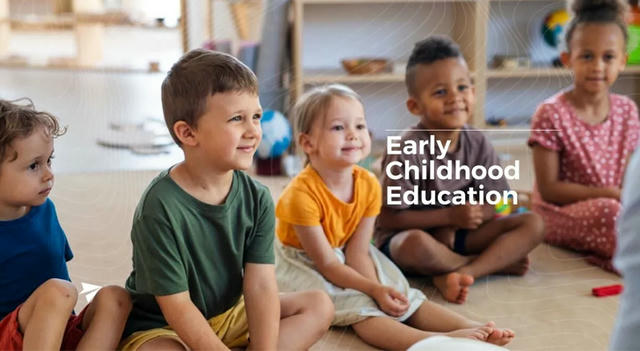In the early years of life, children experience rapid development in language, cognition, social interaction, and emotional regulation. During this critical period, the role of an Early Childhood Education Assistant (ECEA) becomes essential. As part of the early learning environment, ECEAs support young children in their formative years and contribute to creating safe, engaging, and developmentally appropriate settings.
For those who enjoy working with children and are interested in entering the education sector, ECEA training offers a practical entry point with real impact and diverse opportunities.

What Does an Early Childhood Education Assistant Do?
An ECEA works alongside certified early childhood educators in child care centers, preschools, kindergartens, and family child care settings. Their responsibilities focus on assisting in the day-to-day activities of a classroom or early learning program.
Common duties include:
Supporting the planning and implementation of age-appropriate learning activities
Supervising children during play, meals, and rest times
Helping promote social, physical, and emotional development
Maintaining a clean, safe, and welcoming environment
Observing and recording children's behavior and progress
Encouraging communication, creativity, and self-regulation
Although ECEAs do not lead classrooms independently, they are vital in ensuring each child receives attention, support, and care during their early learning experience.
Why Is This Role Important?
The early years—from birth to age six—are foundational for a child’s long-term well-being and success. Research from developmental psychology and neuroscience indicates that high-quality early education can improve:
Language and literacy skills
Emotional self-regulation
Social competence
Problem-solving abilities
Long-term academic performance
ECEAs contribute directly to this process by engaging with children daily, helping them learn through play, routine, and interaction.
Who Is the ECEA Program For?
The Early Childhood Education Assistant course is designed for individuals who:
Enjoy working with young children in a learning or care setting
Are exploring a career in education, child development, or social services
Seek meaningful, people-focused work with long-term impact
Wish to begin working relatively quickly while gaining foundational training
Are parents or caregivers interested in formalizing their experience
The course is also suitable for individuals seeking flexible work arrangements, as early learning centers often offer part-time, full-time, and shift-based roles.
What Does the Training Include?
ECEA training programs typically span several weeks to a few months and include both theoretical knowledge and practical skills. The curriculum may include:
-
Child Development Fundamentals An introduction to physical, emotional, cognitive, and social development from infancy to age six.
-
Guiding Children’s Behavior Techniques for promoting positive behavior and supporting emotional development through play-based learning and gentle communication strategies.
-
Health, Safety, and Nutrition Training on creating safe learning environments, promoting healthy habits, and responding to basic health needs.
-
Communication and Professionalism Understanding how to work collaboratively with children, families, and colleagues while maintaining professional ethics and boundaries.
-
Inclusive Practices An introduction to working with children of diverse backgrounds and abilities, fostering an inclusive and respectful environment.
Some programs also include practicum placements in licensed child care centers, offering real-life experience under supervision.
Benefits of Completing an ECEA Course
✔ Fast Entry into the Workforce Training is relatively short, allowing graduates to begin working soon after completing the course.
✔ High Demand for Qualified Assistants With ongoing expansions in child care programs and increased recognition of early childhood education, demand for ECEAs is steadily rising.
✔ Work That Matters Assisting in early education means playing a part in shaping the social and emotional development of the next generation.
✔ Flexible Career Pathways Graduates can pursue further studies to become Early Childhood Educators (ECE), Infant/Toddler Specialists, or pursue roles in special education and family support.
✔ Variety of Work Settings Opportunities exist in private and public daycares, Montessori schools, kindergartens, after-school programs, and community centers.
What Makes a Great ECEA?
While training provides the necessary skills and knowledge, successful ECEAs often share several core qualities:
Patience: Working with young children requires calm, steady responses in all situations.
Creativity: Engaging children through songs, stories, and games promotes learning.
Observation Skills: Recognizing subtle changes in behavior or development is key.
Communication: Clear and gentle communication supports both children and teamwork.
Empathy and Warmth: Children thrive in environments where they feel safe, loved, and respected.
Final Thoughts
Becoming an Early Childhood Education Assistant offers more than just a job—it opens the door to a career centered on care, learning, and meaningful human connection. Through guided training and hands-on experience, individuals can develop the skills to support children in their most crucial developmental years.
As communities continue to invest in early learning, ECEAs play a critical role in building strong, resilient, and curious minds—one child at a time.
For those seeking a purpose-driven path with practical outcomes, the ECEA course provides a strong beginning.



